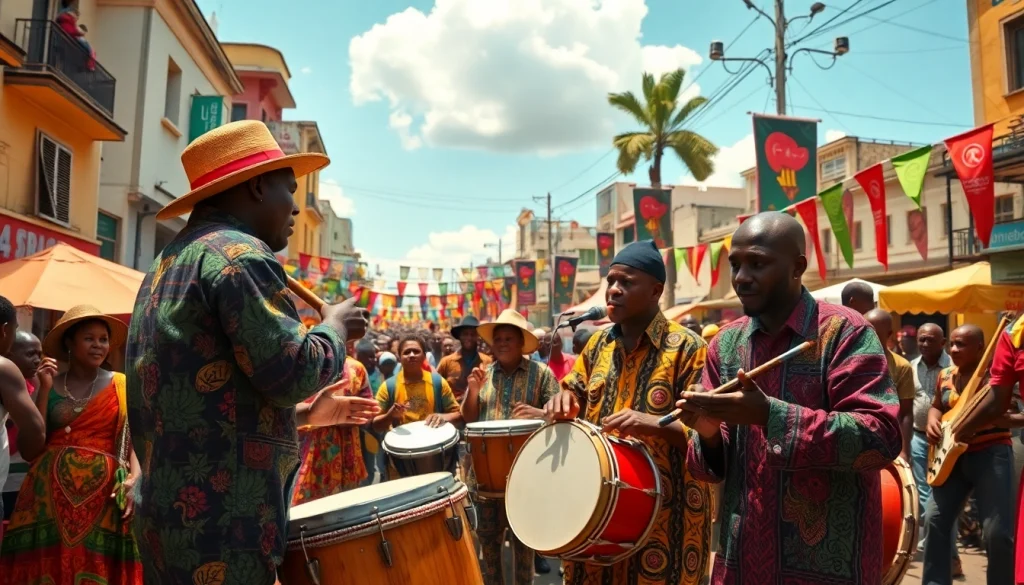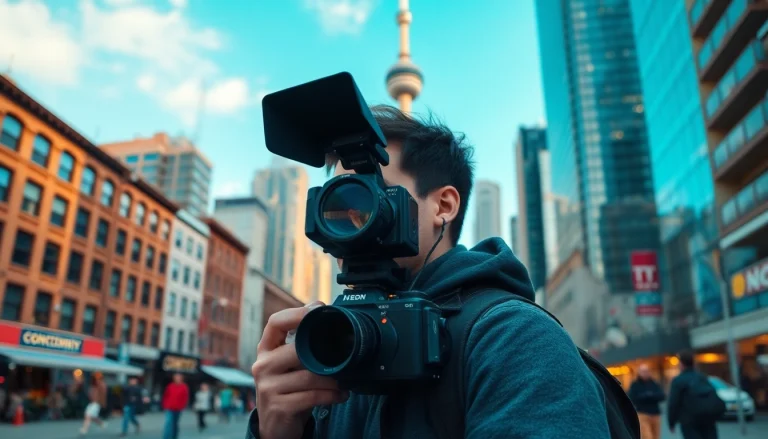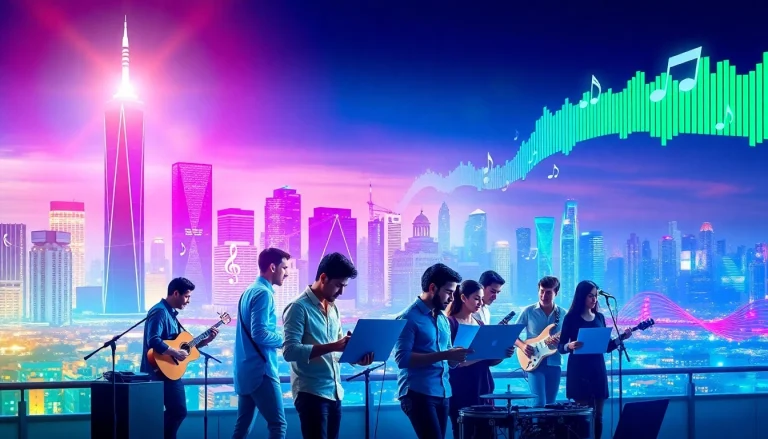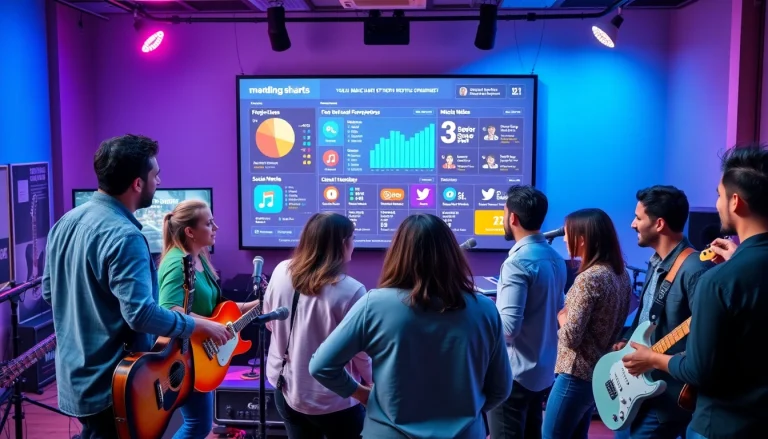
The Essence of Local African Music Discovery
Local African music is an expansive tapestry woven from the rich threads of culture, tradition, and community. As the world becomes more interconnected, the importance of Local African music discovery grows, providing insight into diverse cultures, histories, and social dynamics. Music serves as both an expression of identity and a vessel for storytelling, allowing communities to connect with their heritage and each other.
Understanding Its Cultural Significance
Music has always played a pivotal role in African culture, acting as a guardian of history and a vehicle for social norms. From the rhythmic beats of traditional drumming to the soulful melodies of contemporary genres, music not only entertains but also educates. In African societies, songs encapsulate local dialects, and folklore, and address social issues—making them a crucial part of the cultural narrative.
Each note and lyric resonates with the community, fostering a sense of belonging. For instance, songs performed during ceremonies highlight natural events, such as harvest or marriage, thereby reflecting the community’s relationship with their environment. This deep-rooted connection is what makes the discovery of local African music an enriching experience for both locals and outsiders.
Exploring Regional Diversity
African music is not monolithic; it is incredibly diverse, varying significantly from region to region. Southern African music reflects the influences of various ethnic groups ranging from Zulu traditional music to the vibrant sounds of Kwaito. In West Africa, the genre of Afrobeats has taken the world by storm, blending traditional rhythms with modern influences, creating an enticing hybrid that resonates with younger generations.
East African musical styles, such as Benga and Taarab, emphasize intricate guitar work and lyrical storytelling that resonate deeply with listeners. Meanwhile, North African music, influenced by Arabic sounds, showcases the complexity and richness of its cultural intersections. Exploring this regional diversity is essential for understanding the broader narrative of African music and its place in global music culture.
The Role of Music in Community Identity
For many African communities, music is an essential component of identity, fostering unity and pride. The representation of various ethnicities and traditions through music creates an inclusive space for dialogue and exchange. Music festivals often serve as cultural showcases where artists celebrate their roots and share their stories, fostering greater understanding among diverse audiences.
The communal aspect of music is highlighted in communal performances where local artists involve their audience, creating a shared experience that strengthens community bonds. Such gatherings affirm and amplify local narratives, ensuring that every voice is heard and represented.
Platforms for Local African Music Discovery
Online Streaming Services
In an age of digital connectivity, online streaming services have emerged as significant platforms for local African music discovery. These services allow listeners to explore an extensive catalog of regional music, discovering both classic and contemporary artists. Algorithms tailored to user preferences promote local music to an international audience, thus broadening its reach.
The convenience of these platforms also enhances accessibility, allowing users to listen to music from the comfort of their homes or on-the-go. Users can curate personal playlists, share favorite tracks, and connect with others who share similar musical tastes, fostering a vibrant online community centered around local African music.
Community Events and Festivals
Community events and festivals remain pivotal for local African music discovery. These gatherings provide a unique opportunity for artists to perform live, engaging the audience in a way that online platforms cannot replicate. Events like the Gnaoua World Music Festival in Morocco or the Lake of Stars in Malawi bring together diverse talents, showcase rich cultural tapestries, and encourage the exploration of various genres.
Attending these events not only exposes audiences to different styles of music but also strengthens community ties. People come together, share experiences, and foster a sense of belonging, enriching the cultural fabric of the community as a whole.
Social Media as Discovery Tools
Social media platforms have transformed the way music is discovered and shared. Artists can connect directly with audiences, promoting their music and engaging with fans on a personal level. Platforms like Instagram and TikTok serve as vital spaces for discovery, with artists showcasing snippets of their work, encouraging listeners to search for full tracks.
Additionally, social media enables instantaneous sharing and feedback, allowing songs to go viral quickly. Hashtags and trends play a significant role in elevating local artists to international fame, as fans explore and share content that resonates with them. This democratization of music discovery allows for a wider range of voices, ensuring that local artists gain the recognition they deserve.
Popular Genres within Local African Music Discovery
Traditional Sounds and Instruments
Traditional African music is characterized by its intricate rhythms, unique instruments, and vocal techniques. Each region boasts its traditional sounds that serve as a bridge to ancestral heritage. Instruments such as the djembe, mbira, and kora play a vital role in the soundscape of local music, embodying the cultural identity of the people who create and perform the music.
Moreover, attending performances that emphasize these traditional sounds allows listeners to connect with the rich histories and lyrics that convey cultural values and stories. The preservation of these sounds is essential for maintaining cultural identity, even as modern influences seep into the musical landscape.
Modern Fusion Trends
In contrast to traditional genres, modern fusion trends are gaining traction in the local African music scene. Artists blend traditional elements with contemporary influences, creating fresh sounds that resonate with younger audiences. This fusion often incorporates elements from genres such as hip-hop, reggae, and jazz, leading to innovative musical expressions that challenge the status quo.
For instance, the rise of artists like Burna Boy has showcased how Afrobeat can seamlessly blend with popular genres to create powerful statements. These modern genres draw attention to local narratives and issues while appealing to a global audience, thus transforming the way local African music is perceived worldwide.
Emerging Artists to Watch
The landscape of local African music is constantly evolving, with new artists emerging and creating waves both locally and internationally. Emerging talents often utilize social media and digital platforms to distribute their music, garnering attention and building fan bases rapidly. Artists like Sho Madjozi and Tiwa Savage symbolize the contemporary voice of Africa, blending tradition with modernity.
Keeping an eye on emerging artists allows listeners to witness firsthand the evolution of local music. These musicians often push boundaries and reflect societal changes, delivering messages that resonate deeply with their communities. Following their journeys can be inspiring, highlighting the dynamic nature of African music and its potential for growth.
Challenges Facing Local African Music Discovery
Access and Representation Issues
Despite the growing recognition of local African music, numerous challenges still hinder its full appreciation. Access to platforms for discovery can be limited, particularly in rural areas where internet connectivity may be poor. These issues create a disparity in representation, affecting which genres and artists gain prominence. It is important for initiatives to promote digital literacy and internet access to ensure equal opportunities for all artists.
Furthermore, representation in the music industry is often skewed towards more commercially viable genres, sidelining traditional and indigenous forms of music. Addressing these issues requires a concerted effort by artists, industry stakeholders, and policymakers to ensure diverse voices are heard and valued in the music industry.
Preservation of Traditional Techniques
Modernization and globalization pose threats to the preservation of traditional music techniques. As musical styles evolve, certain cultural practices risk being diluted or lost altogether. It is essential to actively support and advocate for the preservation of these traditional music forms, as they serve as vital cultural artifacts that embody histories and identities.
Programs that document and promote traditional music practices can help educate younger generations and ensure that these art forms are carried forward. Workshops and community initiatives can also encourage the passing down of skills and knowledge, sustaining a rich musical heritage.
The Impact of Globalization
While globalization has made it easier for local African music to reach international markets, it also brings concerns about cultural commodification. As global audiences embrace African music, there is a risk that authenticity may be sacrificed for broader appeal. Artists may feel pressured to conform to international trends, which could undermine their local narratives.
Navigating this landscape requires a balance between embracing globalization and maintaining authenticity. Artists and listeners alike must advocate for a genuine representation of local music, ensuring that cultural integrity is preserved while still reaching new audiences.
Enhancing Your Experience of Local African Music Discovery
Creating Playlists for Cultural Immersion
Engaging with local African music can be an enriching experience, especially when listeners curate their playlists across genres and styles. A thoughtfully crafted playlist can serve as a journey through different cultures, showcasing the unique sounds and stories that each region has to offer. By mixing traditional tracks with contemporary artists, listeners can experience the dynamic nature of African music.
In addition, exploring various genres allows audiences to develop a deeper appreciation for the artistry involved, fostering an understanding of the cultural contexts in which the music is created. Sharing these playlists with friends can also encourage conversations and promote the discovery of local sounds among wider circles.
Joining Local Music Communities Online
Online communities centered around local African music can provide invaluable resources for discovery. Platforms such as forums, social media groups, and dedicated websites foster engagement among fans and musicians alike, creating a space for discussion, sharing recommendations, and promoting local events.
Participating in these communities allows music enthusiasts to gain insights into lesser-known artists, genres, and cultural expressions. Additionally, these communities can amplify the voices of marginalized artists, ensuring that diverse stories are celebrated and shared.
Supporting Artists Through Crowdfunding Platforms
As the music industry evolves, artists are increasingly turning to crowdfunding platforms to finance their projects. Supporting local African musicians through these platforms enables listeners to engage directly with the artists they love. By contributing to crowdfunding campaigns, fans play a direct role in the creation of new music and can access exclusive content, experiences, and merchandise.
This model not only empowers artists financially but also builds a loyal community of supporters who are invested in their success. By backing local artists, fans can ensure that diverse musical voices continue to thrive, enriching the global music landscape.






